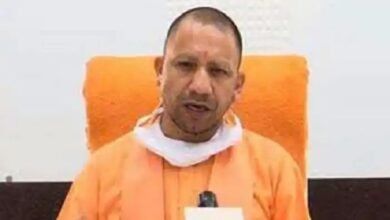[ad_1]
Holding the move of the Union government to abrogate Article 370, as constitutionally valid, a five-judge Constitution bench of the Supreme Court also directed the Centre to restore its statehood. The bench also directed the Election Commission of India to conduct elections by September 2024.
Eklavya Valmekan, one of the two Valmikis who had approached the Supreme Court in support of the abrogation of Article 370, expressed happiness over the decision. Valmekan said it has given a final burial to the temporary provision of the Constitution which enabled successive governments in the erstwhile J-K state to discriminate against his community.
Valmekan, along with his neighbour Radhika, had filed an application before the Supreme Court requesting a hearing before it decided the writ petitions challenging the Central government’s decision to abrogate Article 370.
The Supreme Court has given a historic decision after hearing all the parties and keeping the interests of all the people in mind, he said, adding that it will go a long way in rectifying the injustice done to marginalised sections of society by J-K governments before August 5, 2019.
“I was a bit apprehensive before the court’s decision, but now all fears have gone,’’ said Valmekan, who is a graduate and has approached the Jammu Municipal Corporation for appointment as a sanitation worker in place of his father who died in service.
Hope for Valmiki community
Both Valmekan and Radhika’s great-grandfathers were brought to Jammu from Amritsar in 1957, when the local sanitation workers went on strike, with the promise that they would get all rights and facilities extended to residents. They were housed in temporary quarters made of tin in the now posh Gandhi Nagar, then a protected forest area.
Despite the promise of rights, generation after generation was ineligible to vote in the Legislative Assembly, municipality or panchayat polls. Their children could not apply for state government jobs either. “Post 370 abrogation, our lives have changed for the better,” said Valmekan.
He said he had applied for a job at J&K Bank two years ago, which was not possible for him earlier as he did not possess a state subject (permanent residence certificate). However, he said it is a different matter that he could not succeed.
The Valmiki community comprises 8,000 to 10,000 people living in Jammu at present, and most of them are engaged in sanitation work, said Garu Bhatti, leader of the Safai Karamcharis.
Bhatti, President, Valmiki Samaj Sabha, said, “Valmikis continued their ancestral job — sanitation work — due to lack of education. There was no point in getting an education when the lack of a permanent resident certificate made them ineligible for government jobs. The few Valmikis who managed to land Central government jobs were still engaged as sanitation workers. We could not even run our businesses because a permanent resident certificate was needed to apply for a GST number.”
The Supreme Court decision upholding the abrogation of Article 370 has not only put at rest all apprehensions within the community about its restoration but has also given them hope for a brighter future.
“More and more children from the community are now applying for government jobs. They have also been included in the list of Scheduled Castes in the UT. They are not just eligible to vote, but to contest elections as well,” said Bhatti.
He added that nearly a dozen boys and girls from the community are graduates today and at least one of them has completed post-graduation.
[ad_2]





